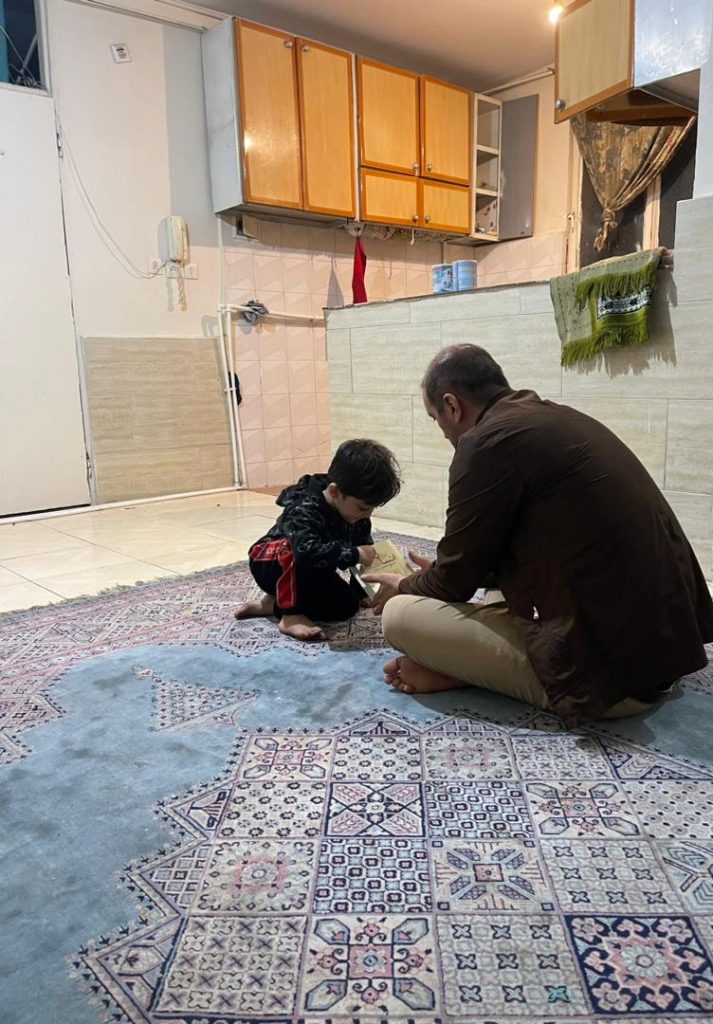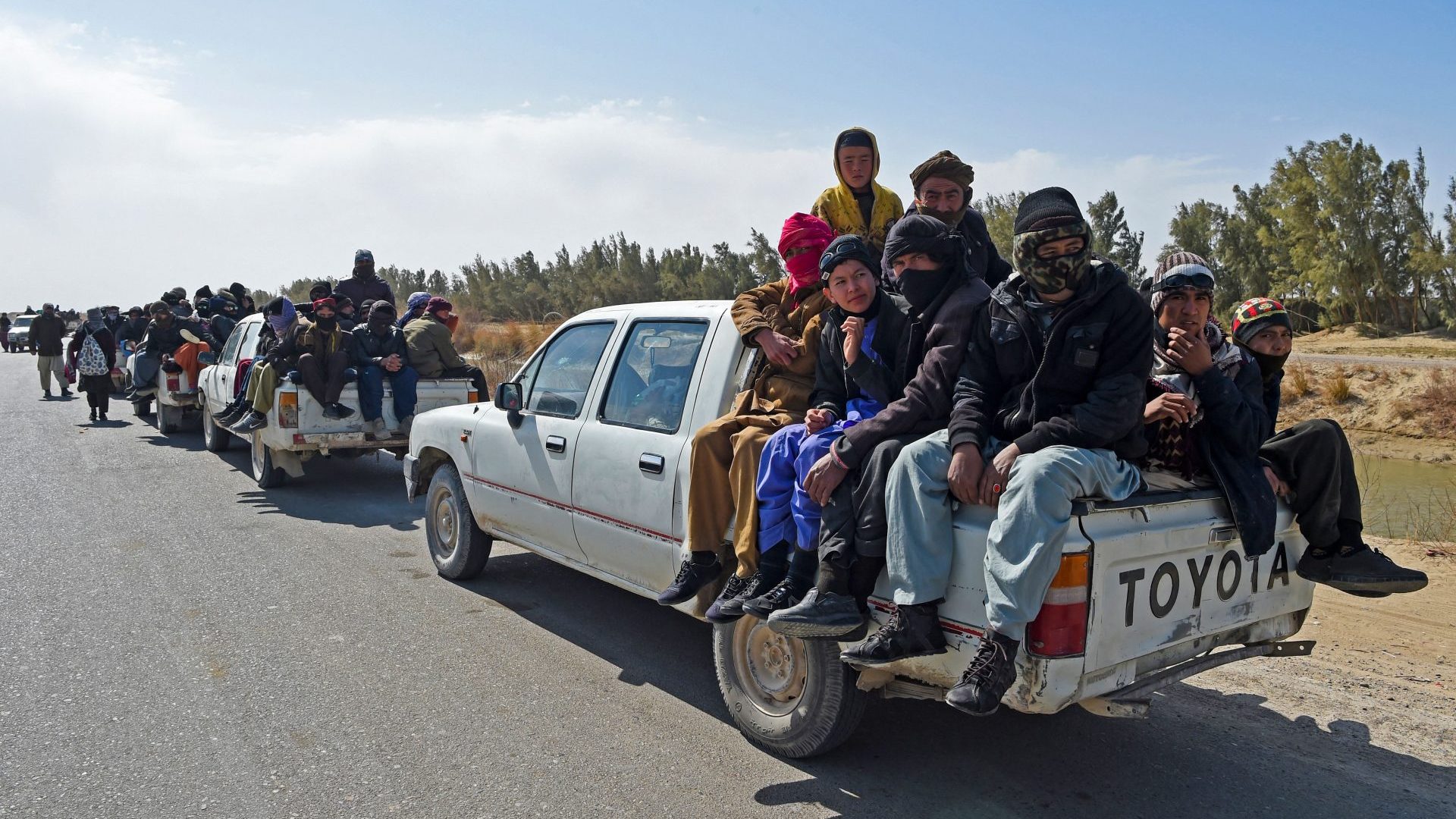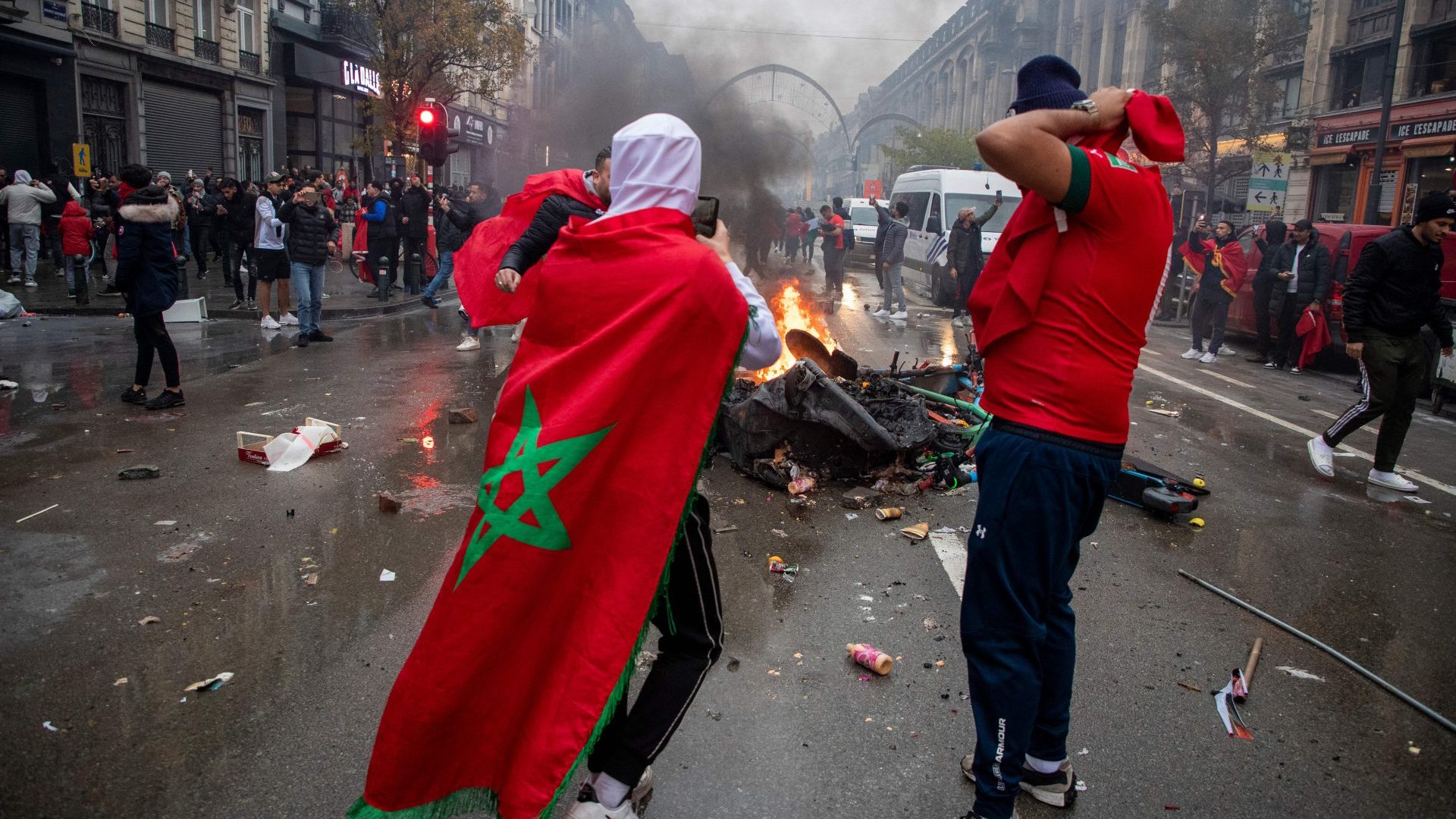Abdul Wazir* doesn’t get much sleep these days. Every night, he lies down on the floor of an old kitchen, in a neighbourhood on the outskirts of Tehran, with his wife and four young children.
It isn’t the biting winter cold that stops him from sleeping. Neither is it the sound of the Iranian police fighting with anti-regime protesters outside his family’s makeshift apartment. Abdul is one of an estimated 200 Afghans in Tehran waiting for resettlement to the UK, but who now face imminent deportation to Afghanistan – a veritable death sentence.
“If they take me and deport me, I will not live any more. I see it in my dreams that the Taliban will kill me,” he says. Hundreds of Afghans associated with the former regime have been murdered by the Taliban since last year, according to the United Nations, despite the militants pledging an amnesty when they first returned to power.
Taliban units go door-to-door in Afghanistan’s cities and towns looking for former regime allies, labelling them traitors. Thousands have also been brutally tortured.
Iran was initially a safe haven for Afghans who had worked for Afghanistan’s previous regime and its international partners. But over the last six months, Iran has deported more than 190,000 Afghans to western Afghanistan, according to officials from the Taliban government.
This is approximately 65% of all the Afghans who fled the country after the Taliban returned to power in August 2021, according to the UN High Commissioner for Refugees.
“We know that Taliban commanders and former fighters are still looking for people they know served in particular capacities in the previous regime, and it is often very individual and local,” cautions Dr Patricia Gossman, an associate director for the Asian division of Human Rights Watch.
“For example, if you were a policeman in Herat and you are known to the new Taliban authorities and someone has a grievance, you could be very much at risk.”
Between 2010 and 2021, Abdul had worked as a finance coordinator for the National Directorate of Security (NDS) in Kabul – the intelligence wing of the Afghan government – enjoying a comfortable, upper-middle-class existence.
He oversaw the millions of pounds of British aid and investment that was pouring into Afghanistan.
“I worked very closely with the United Kingdom embassy. I received their funds and provided logistical assistance for projects in Kabul – particularly in the fields of education, for Afghans who couldn’t afford to attend higher education, and in construction,” says Abdul.
“We had many construction projects funded by the UK, often in the District Nine neighbourhood of Kabul. I would always be in this part of the city checking on the progress of these British projects.”
As the Taliban swept across Afghanistan, Abdul was informed by the British Embassy in Kabul, he says, that he and his family would be eligible for resettlement in the UK.
On August 12, 2021, he excitedly applied for the Afghan Relocations and Assistance Policy (ARAP) – a scheme described by the British government as being “for Afghan citizens who worked for or with the UK government in Afghanistan in exposed or meaningful roles”.
“Two of my colleagues were picked up by the Taliban in Kabul and they disappeared for a long time. When they were released they were in hospital for a week because they had been beaten so badly,” recalls Abdul. Then the Taliban turned their attention to him.
“At the beginning, they would politely call me on my telephone, asking me to come to their offices for questioning. But then one of my former colleagues, a friend, visited my house and warned me they were looking to arrest me.”
In addition to working alongside the British authorities, Abdul also hails from Afghanistan’s Panjshir Valley, which has always been the cradle of resistance against the Taliban.
It remains home to an ethnic Tajik population – in contrast to the Taliban, who are majority ethnic Pashtun – who continue to oppose Taliban rule today. Reports continue to emerge of Panjshiri rebels carrying out deadly attacks against Taliban positions.
After making his ARAP application, Abdul left Kabul with his family and sought refuge with friends living in small towns in the more remote northern Afghan provinces of Kunduz and Balkh.
But even there he was warned that Taliban officials were looking for him. Then in February, with help from contacts made during his days working for NDS, the intelligence service, he used the last of his savings, around £1,700, to bribe his way on to a flight to Tehran.
“I got the chance to come to Iran with my family and it was the only place where we could go to stay alive. Betrayed by the UK Everyone knows if the Taliban find someone from the NDS they are going to beat them so badly and even kill them,” admits Abdul.
“One night before I left, the Taliban even caught me by chance. I only escaped because I had no identity card and I pretended to be a shopkeeper. I was shocked that they believed me, but they told me if they caught me again and I had lied, I would be in trouble.”
Hundreds of thousands of Afghans have made the perilous journey to Iran; either by crawling underneath a fence near the official Islam Qala border crossing in Herat province or by climbing over the two-metre-high wall in Nimroz province.
“I remember the story two young men told me, who had crossed from Afghanistan into Iran and they were being shot at by the Iranian security forces but said their only other option was to walk back to the Taliban so they kept going,” says Marie Forestier, a researcher on refugee and migrant rights in the Middle East and North Africa for Amnesty International.
“This is even putting aside the abuse many of these Afghans face from people smugglers and the frequent risk they face of being arbitrarily detained, tortured and ill-treated in Iran.”
In March 2022, the Border Commissioner of Afghanistan’s Nimroz province told Amnesty International that “on average, every month, between 25 and 30 deaths are caused by gunshot. They [the Iranian security forces] shoot at everyone. Sometimes we receive bodies of women and children.”

Despite the risks involved, many do make it. In late 2021, the Norwegian Refugee Council reported that up to 5,000 Afghans a day were fleeing into Iran, and the influx has remained fairly steady.
Out of this number, it is impossible to know how many people are awaiting resettlement in the UK. Iran does not have a central database for its Afghan refugees.
Forestier from Amnesty International agrees it is difficult to give an exact figure, but says that there are “many people who had worked with foreign governments or the previous Afghan security forces” in Iran.
Hakimatullah Allaiwal* arrived in Tehran in March and acts as a community liaison among the city’s Afghans. He estimates there are now 200 Afghans in Tehran awaiting resettlement in the UK.
“I was able to get some work here as a delivery boy for a bakery. I am grateful for the work, but it is difficult for me because I am new to Tehran and I don’t know all the locations – the Iranians often don’t help me,” says Hakimatullah.
“But the Taliban aren’t here in Tehran. That is the most important thing.”
For these two men, life is hard. The Iranian authorities have not provided residency permits to the majority of Afghans who have arrived in the country and therefore they can only pick up irregular work.
In Afghanistan, Hakimatullah was the deputy head of security for the intelligence agency in Kabul, arresting thousands of Taliban suspects before the militants returned to power.
Before this, he had worked for the British Council in Afghanistan, enrolling Afghans in training programmes, after which they would go on to fight alongside British troops against the resurgent Taliban.
As he was a top Taliban target, he was confident the UK would process his resettlement application as a priority. But, like Abdul, over one year later he is still waiting and now faces deportation to Afghanistan.
Afghans have relocated to Iran for generations – both as economic migrants and political refugees. While the Iranian authorities have, intermittently, deported Afghans throughout history, the current scale is unprecedented. In August, at least 50,000 Afghans were returned by bus, according to Afghanistan’s Ministry of Refugees and Repatriation.
It is unclear exactly why this might be, but activists speculate it could be a result of Iran’s economic downturn and growing anger over Afghans taking jobs, as well as a broader security crackdown on the ongoing anti-regime protests.
“It is now very common that Afghans are picked up in Iran. Even people living in large cities like Tehran or Mashhad are arrested while walking to work,” says Forestier.
“It seems the Iranian security forces are looking out for people who could be Afghan and asking them for valid documents. When they don’t have them, they are detained until they pay a fee themselves – which is unheard of – to be deported back to Afghanistan by bus.”
Afghans who previously worked alongside the British authorities, like Abdul and Hakimatullah, typically had some savings and were initially able to secure a visa for themselves and their families from the authorities in Iran.
But their luck is now running out. Hakimatullah says the Iranian authorities have refused to extend his visa for a third time and have told him to leave the country.
Abdul was able to secure a visa extension in September for two months, until November, at an eye-watering cost of $400 (£334), after borrowing money from a relative in Germany.
But then he will join his family in becoming undocumented in Tehran and risks deportation to Afghanistan at any time.
“The key concern for us is that there is absolutely no assessment of individual situations in Iran. The Iranian authorities don’t take testimonies from Afghans and don’t evaluate their protection needs,” adds Forestier.
“There is also no possibility of these people applying for asylum in Iran, as they should be offered under international law.”
As of August, the UK government says more than 21,000 Afghan refugees had been settled in the country, including 10,100 people under the British government’s Afghan relocation scheme.
But according to figures that were released in October by the Ministry of Defence, at least 5,000 high-risk Afghans are still awaiting urgent resettlement. The report blamed a huge backlog in applications for ongoing delays.
“It is imperative that international governments bolster their processing capacity in Iran for Afghan pathways… The present situation is untenable and lives are at risk,” says Sarah Magill, managing director of Azadi Charity, which assists people targeted by the Taliban with resettlement.
“Many of those residing there temporarily are at risk of torture or death if they are deported into the waiting hands of the Taliban,” says Magill.
When the New European contacted the Foreign, Commonwealth and Development Office they said they were “still working hard” to resettle Afghans.
“To date, nearly 23,000 people have been brought to safety. This includes British nationals and their families, Afghans who loyally served the UK and others identified as particularly at-risk, such as campaigners for women’s rights, human rights defenders, Chevening scholars, journalists, judges, and members of the LGBT+ community,” a UK government spokesperson added.
For Afghans facing deportation from Iran to Afghanistan, they simply cannot understand why a government they served so loyally for so many years appears to have forgotten about them and cannot process their resettlement applications.
“I always worked hard, with energy, honesty and integrity and I was always clear in my work, I did it with love even,” laments Abdul.
“I have lost everything, so please help me and my family to resettle in the UK. Allow us to make a good life for our kids and let us stay alive.”
* Names have been changed for protection.
Joe Wallen is South Asia correspondent for the Daily Telegraph



